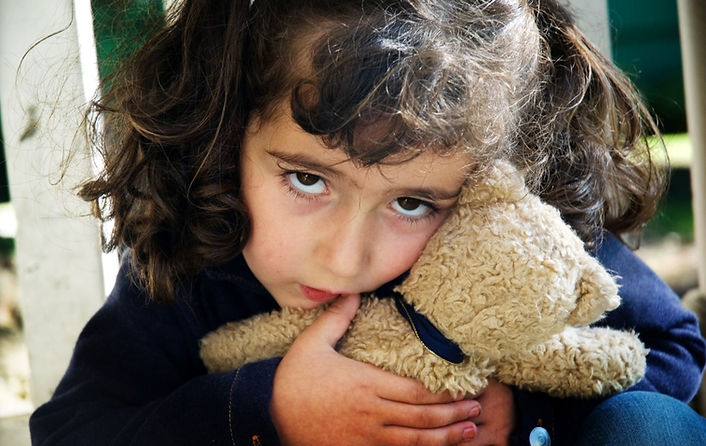Welcome to ILUME
Walking with you every step of the journey
Therapeutic community for families struggling with:
*RAD (Reactive Attachment Disorder)
*Challenging Behaviors
*Trauma and Adoption
What Are They Thinking?!
"I trusted you to be there and take care of me and you weren't. It hurts so much that I will not trust anyone ever..."
_edited.jpg)
_edited.jpg)
"It doesn't make sense!"
It does for them...
As much as I would like to say 'they are not thinking and that is the reason they behave the way they do', RAD children do way more thinking than we can imagine. They are just not thinking right, even if they are convinced of the opposite.
The trauma affected brain works very differently than the regular one. RAD children rarely have the same kind of reactions a regular child would because they don't have the same kind of brain functioning.
We can't just ask them to think logically because actually one of the most affected parts of the brain when there is trauma is the one in charge of reasoning and cause and effect thinking.
We could use an entire class to learn about the brain's functions and different areas, that's how complex it is. Every part of the brain has a reason to be, and there are stories that illustrate how an injury can affect just a specific part of it and change that person's life drastically.
While RAD children don't necessarily have an injury itself, some areas of their brain didn't develop correctly or learned how to function differently due the trauma they have experienced.
Besides lacking cause and effect thinking, a really great example of all this is how hypervigilant these children are. The trauma these children face generally makes them be in an alert state most of the time.
It is because of that why they can't seem to react appropriately when they feel triggered or threatened.
When regular people feel in some kind of danger, the brain's natural reaction is to assess the situation and all the possible scenarios and courses of action.
Trauma affected children would usually react with a fight, flight, or freeze response.
When triggering a RAD child, it's reasonable to expect them to immediately get defensive, either physically or verbally; try to run away from the place or situation; shut down and disengage.
It is important to understand that RAD children's behaviors and thinking ways are usually motivated for the intense need to feel in control.
According to their reasoning, they need to be the strongest and smartest person around so they can be the ones in charge of the situation and make sure nothing they don't like happens. They feel like being in control will help them protect themselves.
When there is early childhood trauma, the children are often too young to process what is really going on and it's really the subconscious trying to figure out the situation. The usual conclusion that comes up is 'If these people that were supposed to protect me, didn't do it, and actually hurt me instead or let me get hurt, then everyone else will too. I have to keep them away for that to not happen, or make sure to hurt them first if they get too close'.
For RAD children the situation is like this: they can only trust themselves, the world is a dangerous place and they are not truly important for anyone.
Some of them really do think something's wrong with them, and it's such an internalized belief that words of affirmation mean nothing to them.
The reason why it's so important for the parents to understand this entire thinking pattern their children have is so they can somehow begin to realize that whatever the child is doing is not really against them, but a defense mechanism they think they need in order to be safe and to survive.
This information won't necessarily erase whatever has happened or eradicate behaviors right away, but it is certainly a useful tool to keep in mind whenever you feel yourself starting to take things personally or to get resentful.
Whenever the child realizes they are able to upset a 'big powerful grown-up', they feel certainly stronger than the adult and that does nothing but to feed the pathology.